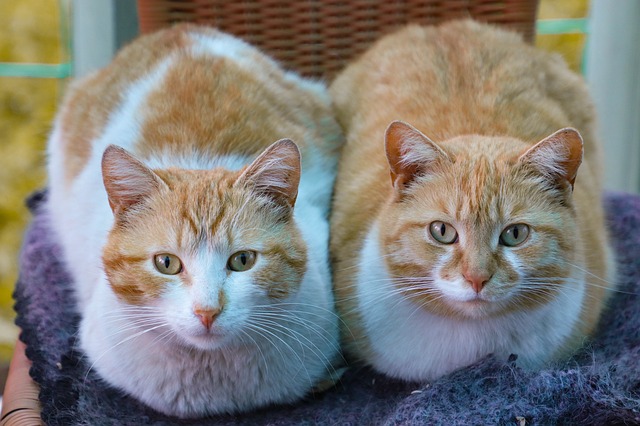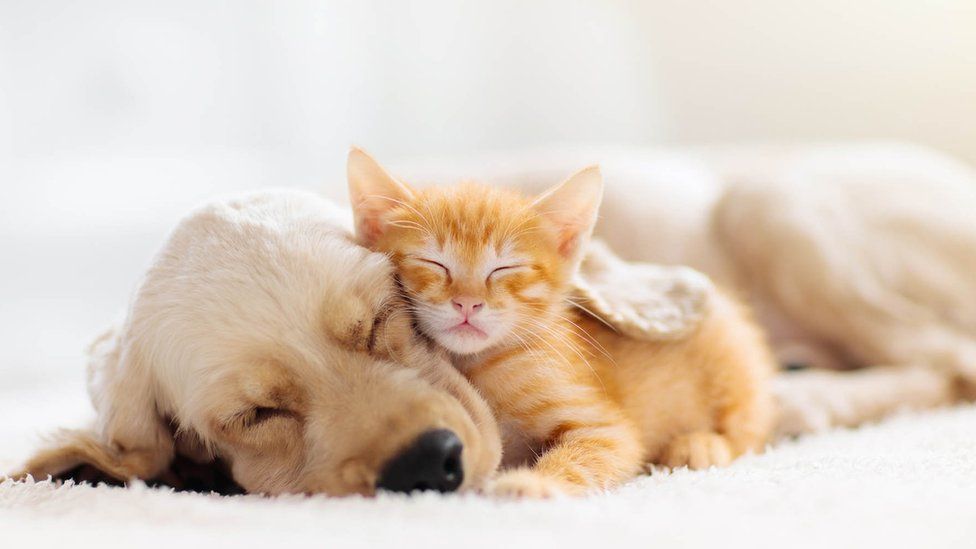Choosing a pet has got to be one of the most important decisions you’ll ever make in your life.
There are many things to put into consideration to make to ensure you find the right fit for your family.
First, you have to decide which specific animal to pick. Do you want a cat, dog, fish, horse, or snake? Which breed is ideal for you? Is a female better than a male? What about the color of the skin? What of the size? Should you get a hybrid or pedigree animal? And so on.
Let’s zoom in on gender. Male and female cats/dogs are different in more ways than one.
For instance, unneutered males are known to be aggressive, active, and ardent urine sprayers.
On the other hand, females don’t bother with territories. Instead, they desire peaceful and calm environments to raise their young.
Sterilization helps bridge the gap to a greater extent. Nevertheless, it doesn’t take care of the gender differences completely.
If you already have dogs and want to add a cat or two to the mix, the gender of the latter matters. Very few things will break your heart other than watching your pets struggle to get along with each other.
On the contrary, seeing them play and share their food bowls is heartwarming. So, which one between male and female cats is better with dogs?
The General Answer

Gender is, for the most part, a non-issue when two different animals are placed under one roof.
A male dog is not too concerned about whether a female or male cat joins the family. As long as he or she doesn’t step on his toes, he will be content to have them join the party.
Likewise, a male or female cat cares very little about the gender of the dog at home.
For intact animals, sexual tensions affect the behavior in many ways. This rings true for both cats and dogs.
An unneutered male, for example, is known for being territorial. He is designed to protect his territory against any males.
To him, this secures his mating rights. At home, he will urine-mark his spots endlessly to ward off any male animals of his kind from coming around.
Unspayed females also act weird when hormones kick in. When they are on heat, they tend to spray, look for males, and fight to get quiet spots to care for their young.
If another female is present, fights will ensue if either party threatens to occupy reserved spots around the house.
With all this information in mind, animals of different kinds don’t see each other as competition. There are no sexual pressures between them. Each one can’t predict the gender of the other. Therefore, you can bring either a female or male cat to a home with dogs.
What matters more is socialization. If you train any of your pets to live peacefully with others, they will co-exist with less or no drama, regardless of gender.
This is why a dog that is introduced to a male or female kitten grows strong bonds with them over time.
The reason is that the two animals get abundant time to get used to each other and become friends.
Related Post: Why Are Cats Afraid Of Dogs?
The Other Side Of The Coin
While gender matters very little when choosing two animals of different kinds, it can play a minor role.
There are subtle factors that oftentimes affect the behavior of a majority of cats.
Before picking a cat randomly, take a look at how male and female cats differ.
Differences Between Male And Female Cats

Male cats, like their canine counterparts, behave differently compared to females.
Those that have not been fixed are very aggressive and territorial. They love to spray urine all over, roam far and wide in search of queens on heat, and get into fights with other male cats.
Oppositely, unsprayed females often go missing during estrus or invite many suitors to their homes. They also vocalize more during this time and if they mate and conceive, become fierce mothers.
Sterilization deals with most of these issues but fixed male and female cats are also different in many ways. Check out the following differences.
- Male Cats Are Attention Lovers: They enjoy hanging around their human owners, following them around the house, and sitting on their laps. Male dogs are more or less the same. They can easily get jealous and aggressive if another pet is given more attention than them.
- Female cats do love human company but they can be independent as well: They don’t mind much if their human owners spend more time with the dog than then them. This means they are perfect around dogs.
- Male cats are affectionate and love being around the family: They love playing with children and are more tolerant than their female counterparts. Plus, they allow their owners and strangers to pet them, be rough with them, and more.
Related Post: 12 Least Affectionate Cat Breeds
- Female cats can be aloof, especially around strangers and other pets. However, they are generally accepting of pets of any kind as long as they are friendly.
- Male cats are more obedient while females can be stubborn and hard to train. If they come across an equally stubborn dog, enmity is inevitable.
The Bottomline
Both male and female cats can get along with dogs. However, if both pets are not sterilized, opposite genders are better around each other.
If you have a male dog (s), you are better off having a female cat. This way, you can keep giving your boy attention without the girl feeling guilty. The opposite is also true.
For parents that neuter and spay their animals, the gender of the cat is trivial.
Nevertheless, you may want to get a female cat if your doggies need too much attention from you. You only need to train the kitty to bond with the dogs.
Oppositely, males naturally get along with dogs more easily than females. They just need plenty of attention and affection. Be prepared to offer enough without spooking envy in your mutt.
Male or female cat? This question is a hard nut to crack especially if you have dogs at home.
If you plan on breeding your pets, keep male cats away from the home if you have male dogs.
Both parties are aggressive, territorial, and love attention. Whatever you do, realize that socialization matters more than gender.
Related Posts:

Hi! I am Eleanor Price. I started this website after my cat, Louie, almost died from a case of botulism (a type of food poisoning often caused by bacteria that grow on food items). Turned out that my cat’s diet was the problem. I have made it my duty to provide the best information and recommendations about everything cat lovers need to know about their felines’ health and wellbeing. My goal is to find the most informative content on anything feline-related and share it with fellow hardworking kitty lovers.

